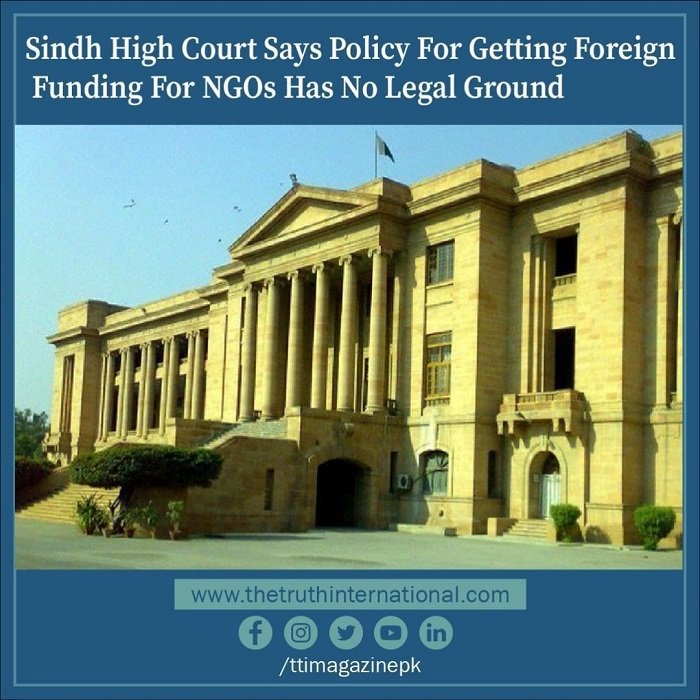KARACHI/ISLAMABAD: The Sindh High Court has said that 2013 policy for regulating the non-governmental organisations (NGOs) receiving foreign funding has no legal ground and effect.
The court observed that the federal government had not given legal cover to the policy since 2013.
An NGO filed a petition in the Sindh High Court against the NGOs Policy 2013. The Economic Affair Division (EAD) formed the policy with the approval of the Economic Coordination Committee (ECC).

Under the 2013 policy, the NGOs utilising foreign funding are required to get prior registration with the government and, subject to concurrence, sign a memorandum of understanding (MoU) containing the information specified by the government.
A two-judge bench, headed by Chief Justice Ahmed Ali M. Shaikh, noted that in the light of the plethora of judgements of the superior courts, the ministry of finance, revenue & economic affairs or EAD was neither vested with such powers nor competent under any law to regulate the petitioner’s operations through a policy, having no constitutional/legislative mandate.
In this case, the counsel for the petitioner NGO Marie Stopes Society maintained that the NGO was registered under the Societies Registration Act, 1860 and it was providing family planning service and ante-and post-natal care for mothers and newborn through its healthcare clinics. The counsel further stated that the petitioner was operating through funding from foreign charitable and donor organisations.

The petitioner applied for registration in terms of the impugned policy, but the same was allegedly placed in cold storage and then an appeal under clause 7 of the Policy was filed and the same was declined, said the counsel.
He argued that the policy, purported to determine the legal character and obligations of the organisations receiving foreign funding, issued through a notification which prima facie was an attempt by the executive of the state to legislate and the same was amounted to a violation of the Constitution.
He maintained that the policy itself recognised the need for legislation and was nothing but a stop-gap arrangement and lacked any force of law.
The deputy attorney general opposed the petition and argued that Article 90(2) of the Constitution allowed the prime minister to perform his functions either directly or through a federal minister, the ECC of the cabinet, thus the notification/policy issued in pursuance of the decision of the ECC was lawful.
He submitted that after rejection of a request, the petitioner had preferred an appeal, which was also rejected in 2019 due to lack of security clearance with a direction to apply afresh for any new foreign funding project as terms of the policy.










